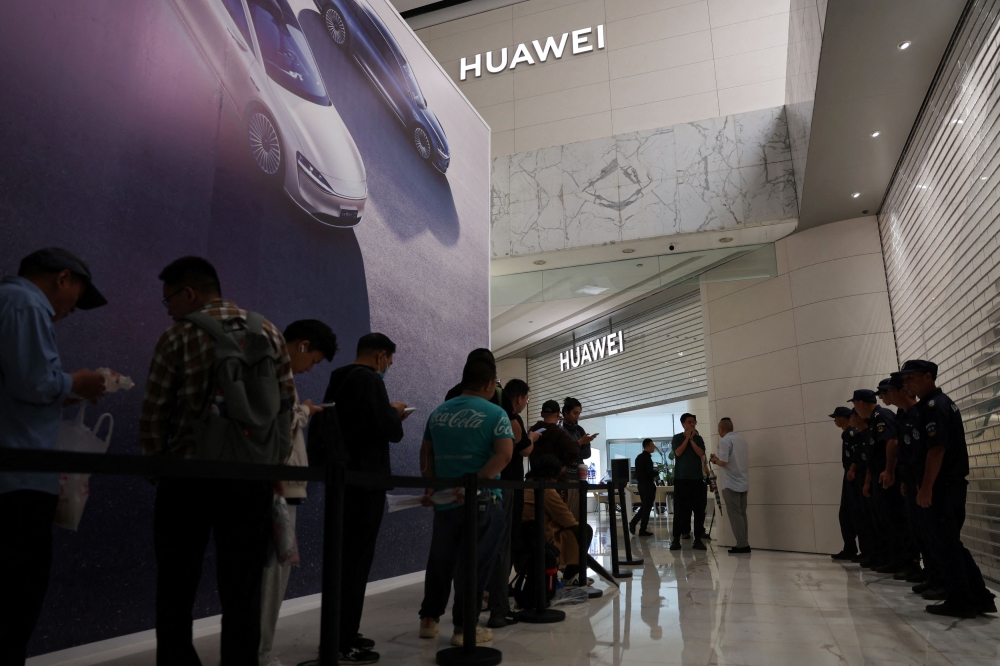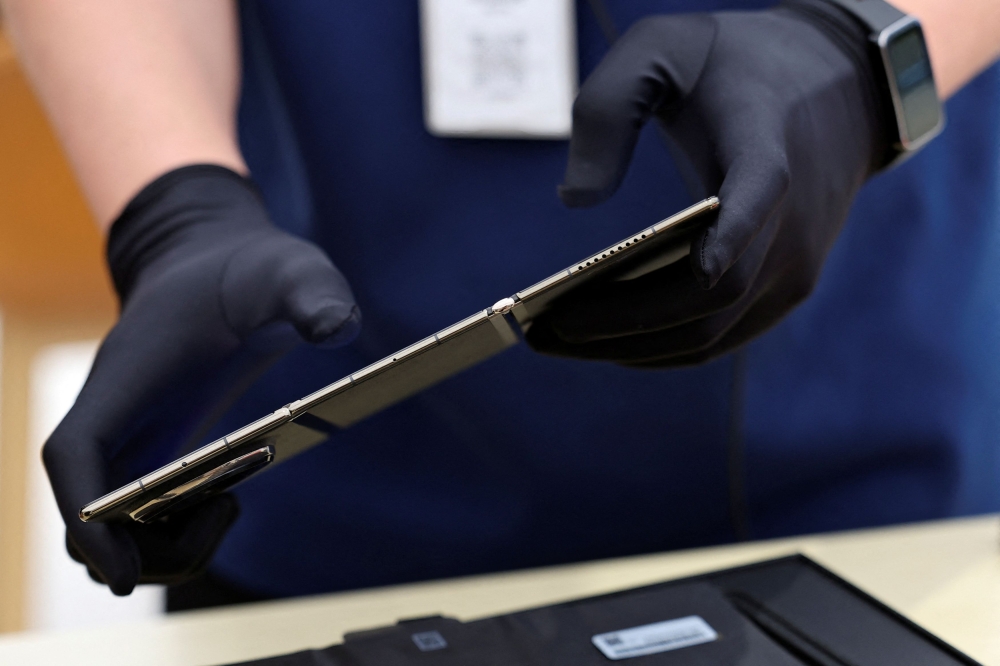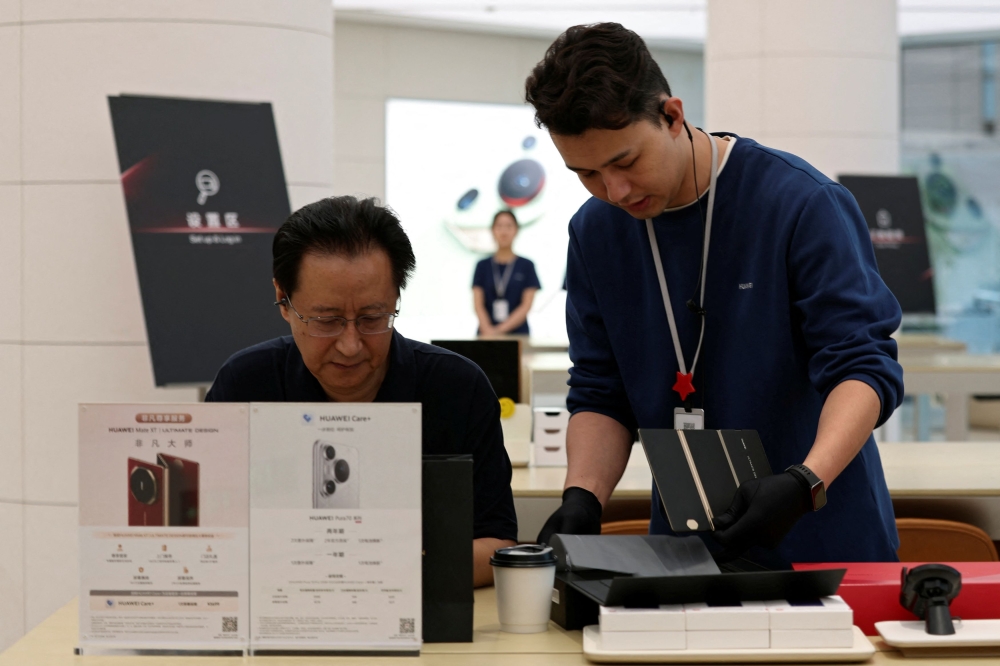- Shoppers cannot buy Mate XT without pre-ordering, confirmation
- Glass, hinge production constraints slow output, analyst says
- Apple’s new iPhone yet to offer Chinese language AI software
SHENZHEN, Sept 20 — Huawei and Apple’s latest smartphones went on sale in China today, with many fans of the Chinese company disappointed that its much-anticipated US$2,800 (RM11,700) phone — more than twice the price of the iPhone 16 Pro Max — was not available for walk-in customers.
At Huawei’s flagship shop in the southern Chinese city of Shenzhen, some who described themselves as Huawei “super fans” were annoyed after being told only those whose pre-orders had been confirmed could buy the new, tri-foldable Mate XT.
“I’ve been here since 10pm last night because this tri-folding phone is a first and I’m excited to support our country,” said a university student surnamed Ye.
“But this is very disappointing. They should have made it clear we can’t buy.”

It was a similar story at the Huawei Wangfujing store in Beijing, where consumers were told only those whose pre-orders had been confirmed could buy the much-hyped phone, which folds three ways like an accordion screen door.
A shopper surnamed Rui who got to try out the Mate XT in Shenzhen said: “I wanted to see what the fuss is about, but it’s a bit big, not very practical really.”
The disappointment comes after some analysts had warned that supply chain constraints could leave many potential buyers of Huawei’s Mate XT empty-handed and others questioned the high cost of the phone amid a sluggish economy.
While Huawei executive director Richard Yu said at Mate XT’s unveiling this month the company had turned “science fiction into reality”, owning the phone still remains a fantasy for many.
Pre-orders for the Mate XT have surpassed 6.5 million, almost double the roughly 3.9 million foldable smartphones shipped worldwide in the second quarter of this year, according to consultancy IDC. “Pre-ordering” does not require consumers to put down a deposit.
Huawei did not say how many phones had been produced so far or how many customers would receive the Mate XT on launch day. Apple did not respond to a request for comment on how many new iPhones were available for sale in China today.
In the Huaqiangbei electronics market in Shenzhen, a phone stall vendor said she was selling the most expensive version of the Mate XT — with the highest memory — for 150,000 yuan (RM89,039), compared to the store price of 23,999 yuan, while she was offering the US$2,800 model for more than US$4,000.
Asked if she had sold any, she replied: “A few people have asked, but it’s far too expensive.”

Apple needs China AI partner
While Apple for years enjoyed strong demand in China, where new iPhone launches once sparked a frenzy, its sales have dwindled and the company’s quarterly ranking in the world’s No. 2 economy has now dropped from third to sixth place.
Apple’s new smartphone launch in China has been overshadowed by the fact that it has yet to announce an AI partner in the country to power the 16s, and Apple Intelligence, its AI software, will only be available in Chinese next year.
Some Apple fans said the AI challenge was not an issue.
“The lack of AI in iPhones is not currently a major concern for me, as it’s more of a gimmick at this stage,” said a customer surnamed Shi who upgrades his iPhone annually.

Speaking about the new offering by Huawei, Shi said it was too expensive and “not for ordinary customers”.
Huawei has received significant patriotic support in China with fans impressed at how the company has managed to overcome years of export controls by the United States that initially crippled its smartphone business.
The launch of the Mate XT, which analysts say has a locally-made chipset, underscores Huawei’s ability to navigate US sanctions although the company’s ability to mass-produce remains a significant concern.
Based on recent checks, key components of the Huawei Mate XT, including the panel, cover glass, and hinges, may be facing production yield issues, said Lori Chang, a senior analyst with Isaiah Research. — Reuters






















